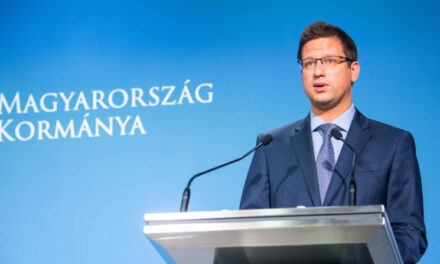"Now everyone wants the Chinese vaccine," an acquaintance of mine from Balatonfüred quoted his own family doctor as saying. If this in itself is not authoritative, perhaps it indicates that in the minds of many, common sense is slowly winning over prejudice.
Browsing through the articles about Sinopharm, we found another opinion that agrees with the statements of domestic virologists in recent weeks about this Chinese vaccine. This is because three types of vaccines based on killed viruses are already being prepared in China. Not only the one that we also receive and from which a new shipment of 450,000 arrived just yesterday.
in Thenationalnews , Luke O'Neill, professor of biochemistry at Trinity College Dublin's Institute of Biochemistry and Immunology, argued for so-called 'conventional' vaccines based on killed viruses. In his opinion, because inactivated vaccines are based on the whole virus, the immune system will have "many weapons against different parts of the vaccine." He claimed that it is not yet clear to what extent the effect of spike protein-based vaccines is affected by its mutations. The "spike" is only one of the proteins in the structure of the virus. Apart from it, it contains the envelope, the membrane and the nucleocapsid. A vaccine based on a killed virus is most likely effective against any mutation, the specialist said on Irish public radio.
Professor O'Neill is not just anyone among European virologists. His CV includes more than 30 honorary titles and honorary memberships since 1995.
In 1995, he received the prize for young researchers of the International Cytokine Society. (In 2012, he became the president of the same society.) In 2004, he was elected a member of the Royal Irish Academy, and in the same year he became the president of the biochemistry section of the British Association for the Advancement of Science. In 2009, he was awarded the title of "Immunology Guru" by the National Health Society of Ireland. In that year, he also became a consultant to those proposing the Nobel Prize in medicine. In 2016, he was elected a member of the British Royal Society. According to British newspapers, if someone is admitted to this society as a member, it is equal to the "Oscar award" received for a lifetime achievement. The year before last, he also received the Landsteiner Prize in Austria, named after the Austrian Nobel laureate doctor.













